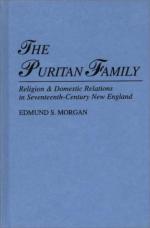|
This section contains 3,127 words (approx. 11 pages at 300 words per page) |

|
PURITANISM. In its most common historical usage Puritanism refers to a movement within English Protestantism in both the British Isles and colonial America. Some historians, identifying the essence of Puritanism as a reaction to the tardy pace of the English Reformation, date it from the activities of William Tyndale (1495–1536) and John Hooper (d. 1555) in the formative years of the Church of England. But its major impact was felt during the century between the coming of Elizabeth I to the throne in 1558 and the death of Oliver Cromwell in 1658. For most of that period Puritanism had no institutional identity of its own. Puritans sought to purge the existing English church of its Catholic remnants rather than to set up a rival church. Because their goal was reform, the line that separated them from their non-Puritan brethren was often unclear, a situation to the advantage of those clergy and laity...
|
This section contains 3,127 words (approx. 11 pages at 300 words per page) |

|


